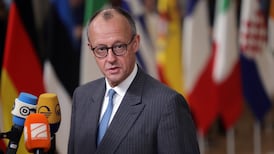Spain’s prime minister Pedro Sánchez is due to testify on Tuesday as part of an investigation into his wife’s business dealings which the opposition says should force him to resign but which other observers say highlights the judiciary’s political bias.
A Madrid court has been investigating Begoña Gómez, the wife of the Socialist leader, since April, when Clean Hands, a campaign group with links to the far right, presented a lawsuit against her for alleged influence peddling and business corruption.
The allegations claimed that Gómez had used her position to influence the awarding of government contracts and Covid bailout money to firms with which she had links. The investigating judge, Juan Carlos Peinado, is now focusing his investigation on whether she used her position to secure sponsorship for a postgraduate course she ran at Madrid’s Complutense University.
Earlier this month he summoned Gómez, who refused to answer questions in accordance with her constitutional right. In a surprise move he has also summoned Sánchez to be questioned as a witness on Tuesday in La Moncloa, the prime minister’s official residence. Sánchez, who insists his wife has done nothing wrong, has requested the right to answer questions in written form rather than in person.
READ MORE
[ Summons for prime minister's wife dominates Spanish CampaignOpens in new window ]
This is the first time a prime minister has been called as a witness in a criminal investigation since 2017, when Mariano Rajoy, of the conservative Popular Party (PP), took the stand in a trial which found his party guilty of corruption. That case led to Sánchez presenting a parliamentary no-confidence motion against Rajoy and replacing him as prime minister.
In April Sánchez posted a letter to Spaniards on social media in which he said he was considering resigning because of the effect the investigation was having on his family, before vowing to remain in his post. In June he posted a second letter in which he said the investigation was part of a politically-motivated smear campaign.
The political right has presented the case as clear proof of corruption in the government.
“Mr Sánchez, leave, write a third and definitive letter, [of resignation,] and leave Spanish democracy in peace,” said PP leader Alberto Núñez Feijóo. Santiago Abascal, leader of Vox, which is one of several groups on the extreme right to join the lawsuit as a plaintiff, said his party would do everything possible “to put an end to the most corrupt government in history”.
[ Guy Hedgecoe: Spain's justice system faces huge challengeOpens in new window ]
However, several aspects of the case have brought the magistrate’s actions under scrutiny, including the fact that the only evidence presented against Gómez are clippings from right-wing news outlets, some of whose information has already been shown to be false. Also, the civil guard police force and the Madrid prosecutor’s office have each said they see no evidence of wrongdoing.
The government and its allies on the left have attacked the inquiry, casting it as an attempt to use the judiciary, which has long faced accusations of being influenced by the political right, to destabilise the government. The justice minister, Félix Bolaños, said it was a “ruthless political persecution”.
Jurists have pointed to the fact that Peinado has not spoken to other potentially key witnesses and that Sánchez would have to answer the judge’s questions in his role as husband of the accused but not as prime minister.
“Is this really nothing to do with his position as prime minister and it’s just about Pedro Sánchez Castejón [as Gómez’s husband]?” said Manuel Cancio, a lecturer in penal law at Madrid’s Autonomous University. “This is a joke. It is not serious and I think anyone can see that.”
- Listen to our Inside Politics Podcast for the latest analysis and chat
- Sign up for push alerts and have the best news, analysis and comment delivered directly to your phone
- Find The Irish Times on WhatsApp and stay up to date














